Config and endpoints
Introduction
As an administrator, you can configure Rasa Studio to suit your organization's needs.
Access
Only the users with developer roles are able to access config and endpoints files.
Configuration
Log in to Rasa Studio as a user with the
developerrole.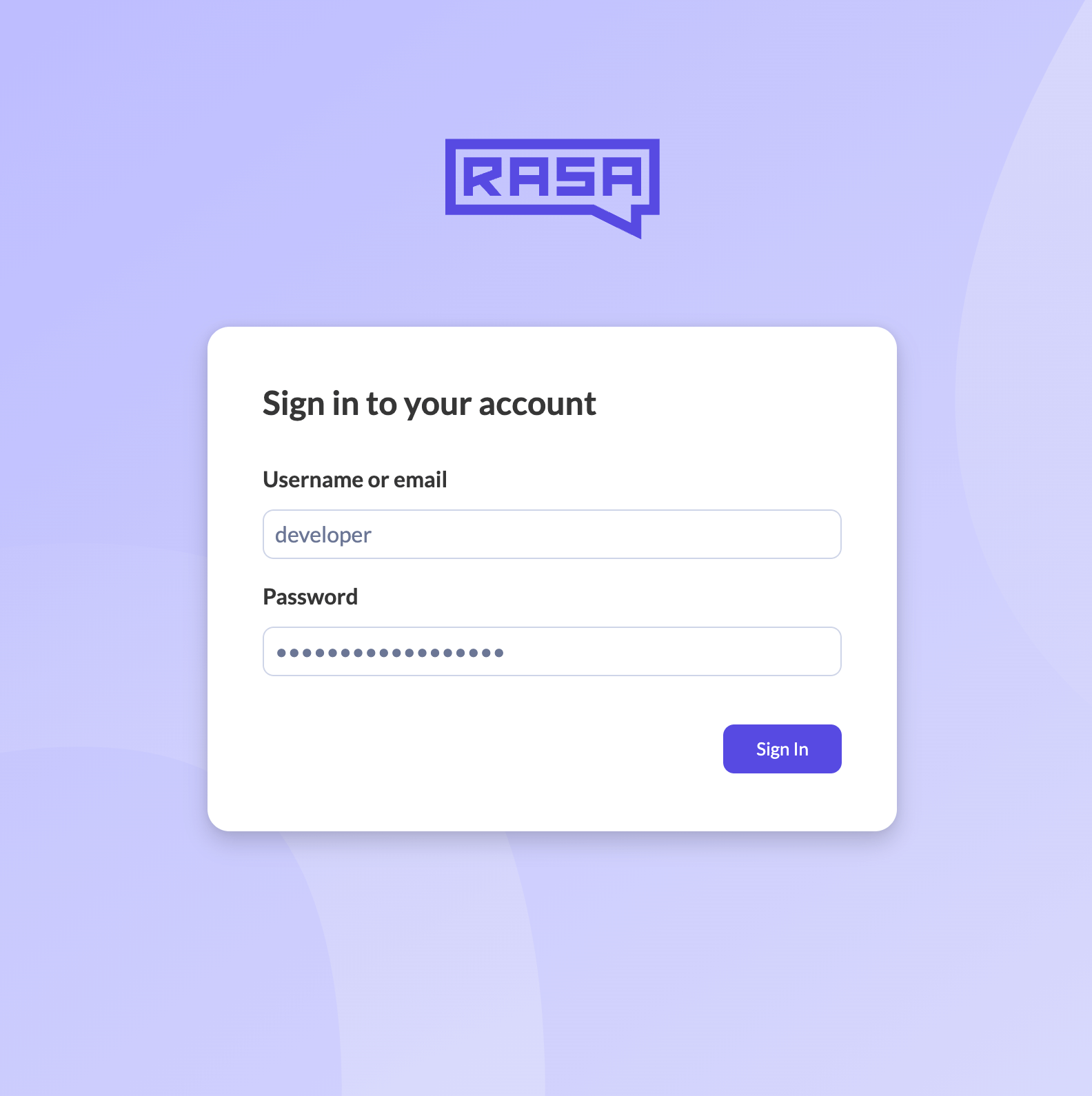
Create or select an assistant you want to configure (only works with
MODERNassistants).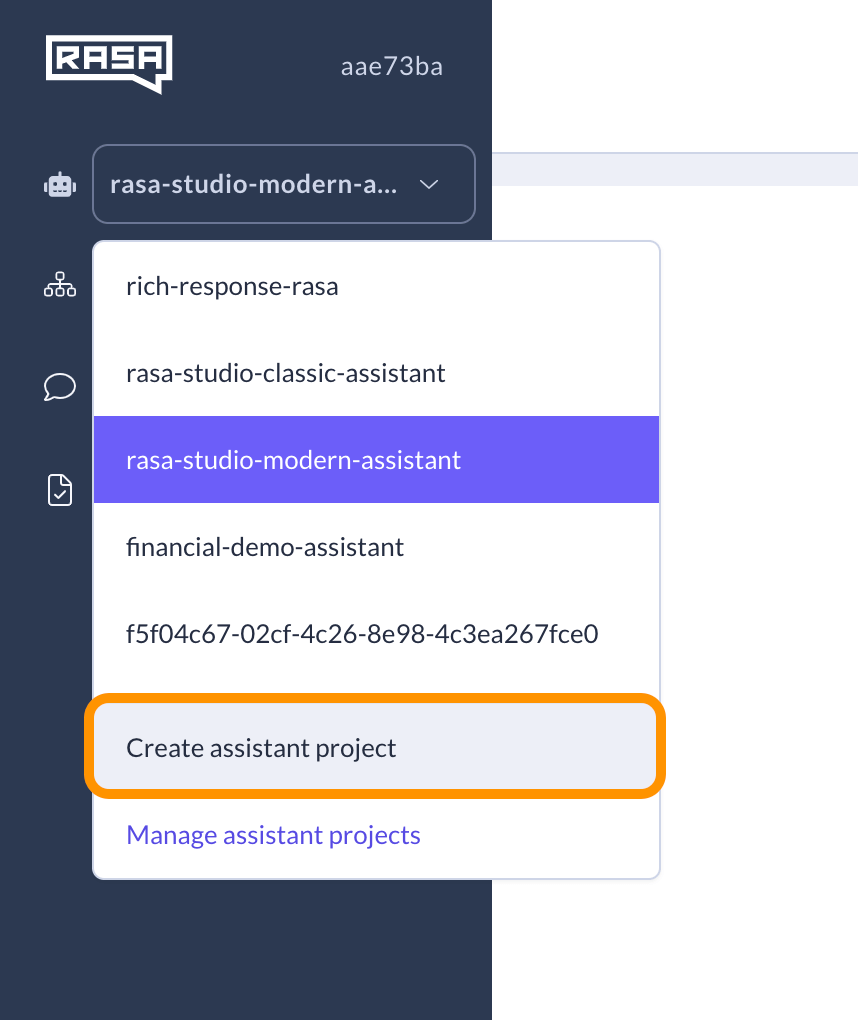
Navigate to the "Assistant settings" page.
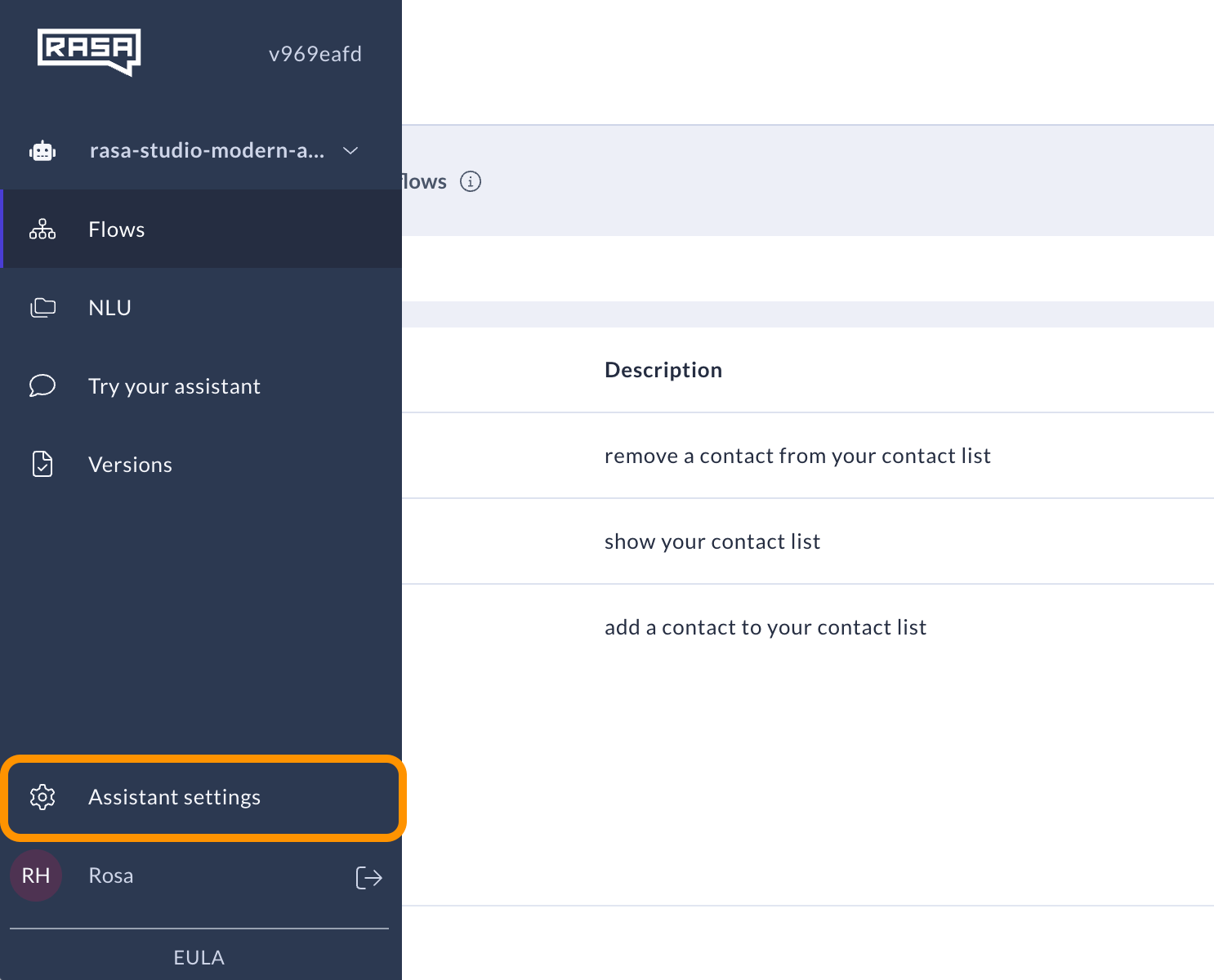
Click on the "General settings" tab. Here, you will find general information for your assistant like Assistant name and Assistant API ID. These settings aren't editable.
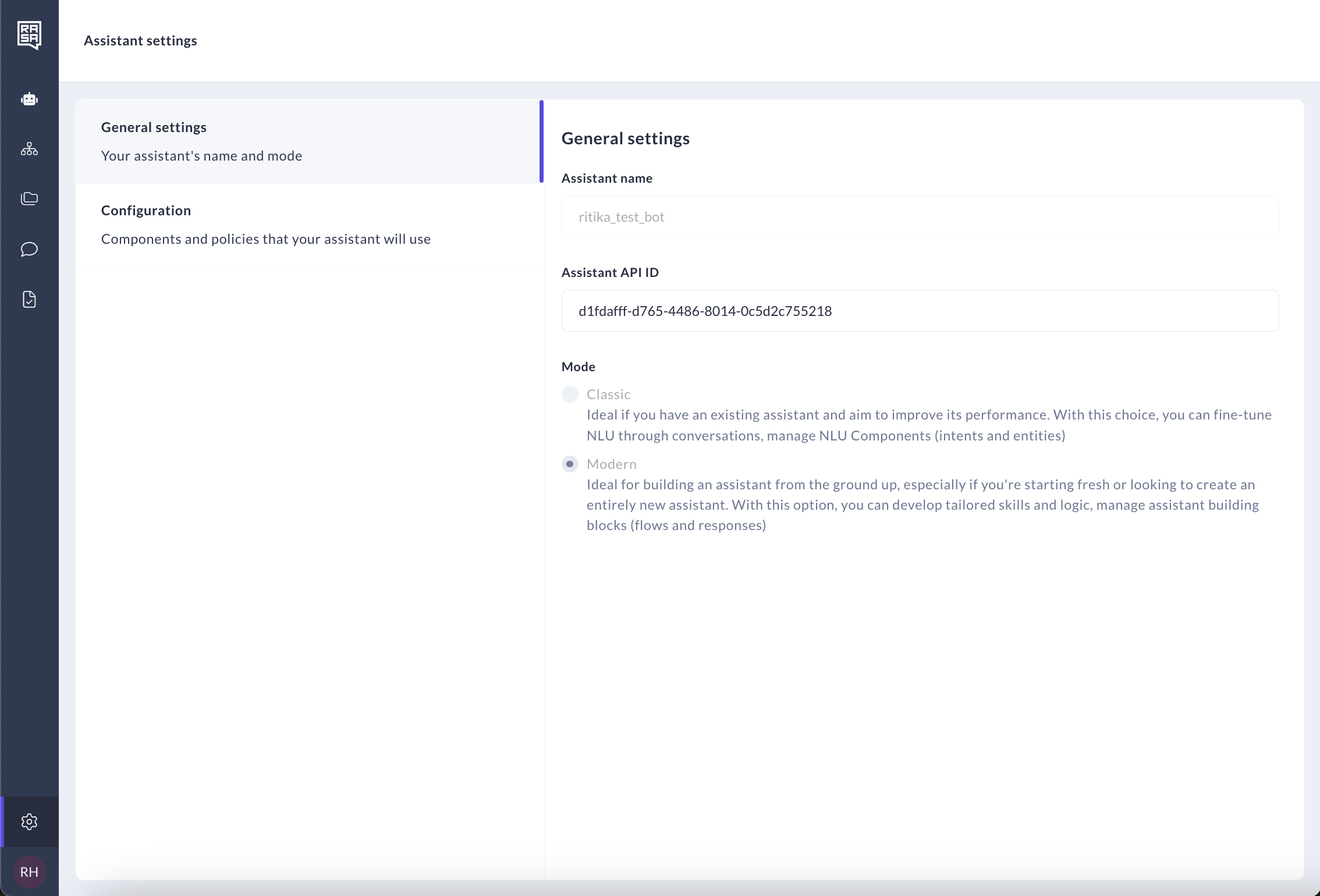
Click on the "Configuration" tab. Here, you will find editors for the default
config.ymlandendpoints.ymlfiles."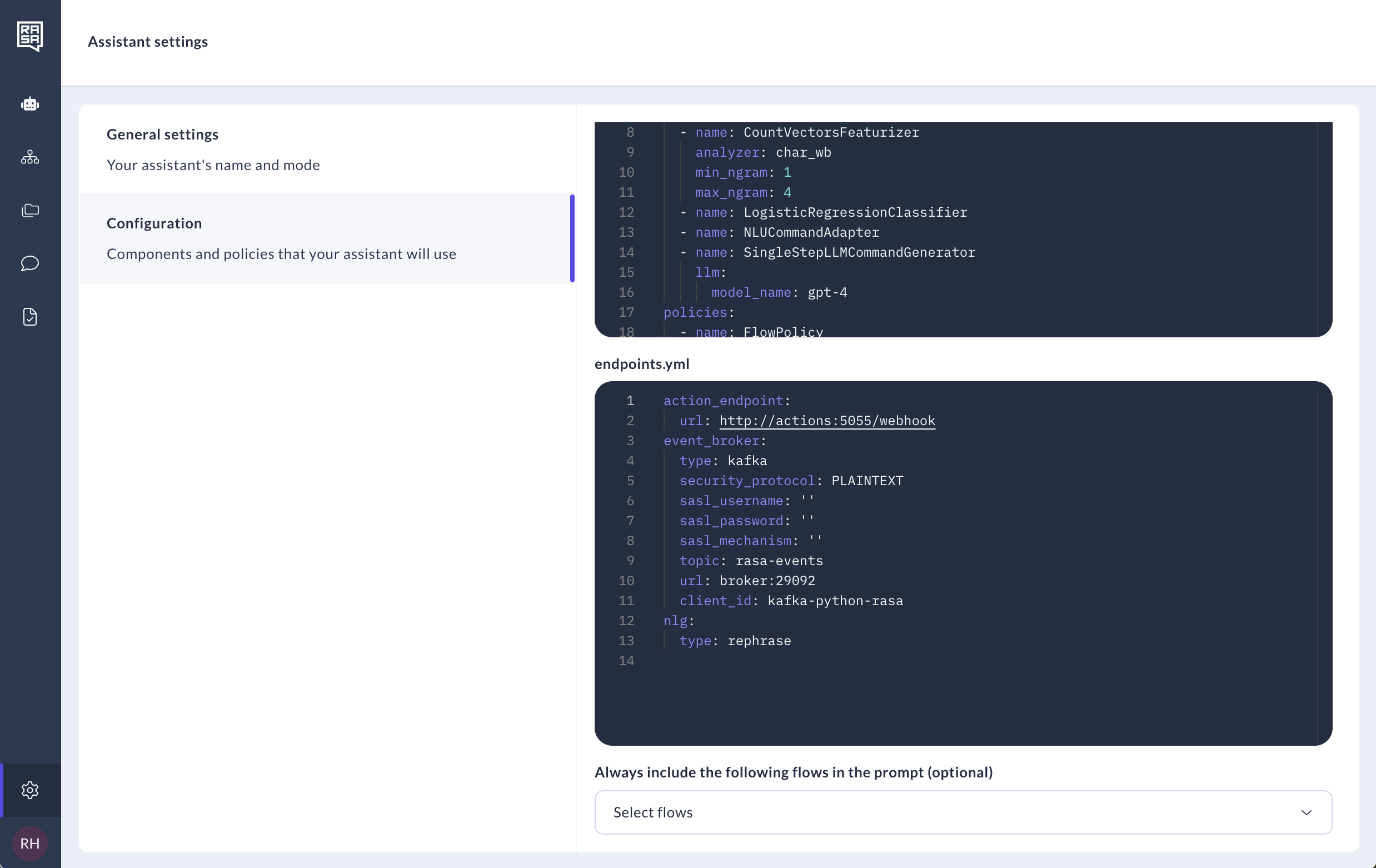
Additionally, there is an option to "Always include the following flows in the prompt." This feature ensures that selected flows are always considered by the LLM during dialogue management, regardless of other constraints. This is particularly useful for flows that are crucial to the assistant's functionality and need to be readily available during conversations. For more details on flow retrieval, please refer to the Retrieving Relevant Flows documentation.
Configuration Files
You can configure LLMs and their deployments, embeddings, NLU, Core, and Action server in these files.
Config
The config.yml file is central to configuring your assistant's behavior. It allows you to customize:
- NLU (Natural Language Understanding) components
- Core model settings
- Training pipeline
- Policies
- LLM (Large Language Model) configurations and deployments
- Embedding settings
Endpoints
The endpoints.yml file specifies various service endpoints used by Rasa Studio, including:
- Tracker store
- Event broker
- NLG (Natural Language Generation) server
- Action server
Further Reading
For more detailed information on config.yml and endpoints.yml files, refer to the Rasa Pro documentation on model configuration.
